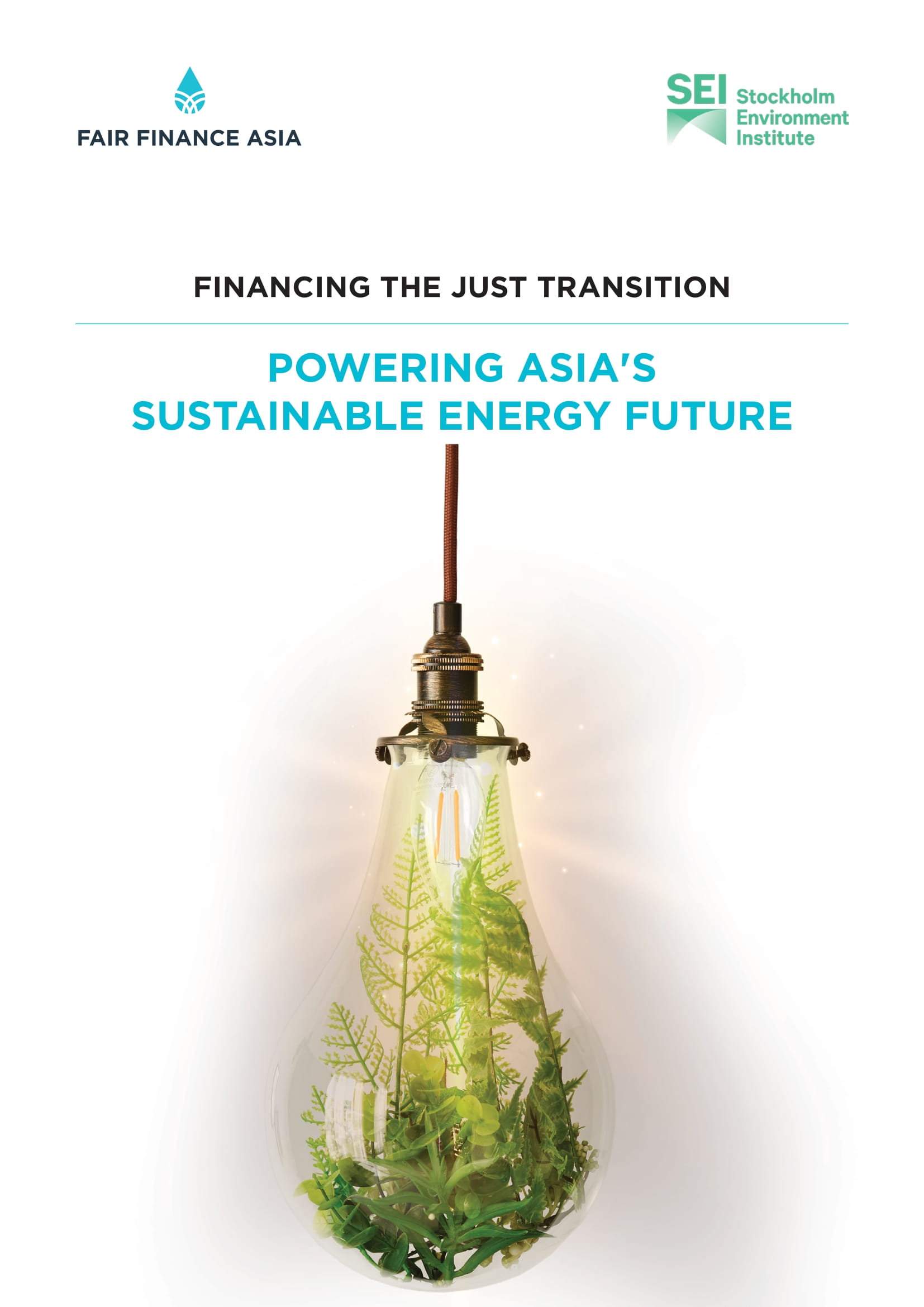
Asian economies are heavily reliant on fossil fuels to meet their energy needs in both the electricity and transport sectors. Major economic powerhouses like India, Japan, and China relied on coal, oil, and fossil gas to meet 77%, 88%, and 89% of primary energy demands between 2018-2019, respectively, while the Central Asian region was collectively dependent on fossil fuels for meeting as much as 97% of their primary energy needs. Phasing out from this dependence and subsequently driving energy transition across the Asian continent (namely, transitions towards low-carbon and high-renewable economies) poses a number of social, economic, ecological, and financial implications, altogether influencing the extent of whether the overall transition will be ‘just’ and protective of society’s most marginalised, under-resourced, and under-privileged fossil fuel dependents.
The above findings are consistent with the 2021 study by Fair Finance Asia (FFA) titled, “A Future Without Coal: Banking on Asia’s Just Energy
Transition,” which revealed continued growth in Asia’s coal sector – even after the signing of the Paris Agreement in 2015 – largely due to ongoing financing by banks and investors operating in the region. It is clear that financial institutions that enable Asia’s energy sectors have a critical role to play in developing and implementing a new vision on Asia’s energy future by reorienting financing to renewable energy innovations, setting clear objectives and implementing time-bound strategies to exit from fossil fuels.
A forthcoming study by FFA and the Stockholm Environment Institute (SEI), “Financing the Just Transition: Powering Asia’s Sustainability Energy Future,” builds on its predecessor by exploring the role of financial institutions in the just transition against the backdrop of social, political, legal, geographical, technical, and legislative hurdles that have impeded (or complexified) Asia’s move to renewable energy to date. The study first maps the financial flows that have been directed to support Asia’s renewable energy production, then delves into thirteen country cases to assess these aforementioned complexities, focusing on:
- national climate policies;
- energy market policies and regulations;
- national and transboundary energy infrastructure;
- financial sector regulations;
- policies and practices of financial institutions; and
- social policies.
As a teaser to the full report, FFA, with research support from Profundo and Strategia Development Research Institute (SDRI), is conducting a fireside chat alongside the 2022 G20 Leaders’ Summit in Bali, Indonesia. During this session, FFA will introduce key findings and observations from the full report pertinent to thirteen linchpin countries for Asia’s just energy transition, which were conducted using a multi-method approach, consisting of, inter alia, literature reviews, semi-structured stakeholder interviews, and an NGO survey.
To access the Key Findings and Observations click here.
To access the full “A Future Without Coal” study, click here.
For more information about the fireside chat, click here.
To participate online at the fireside chat, register here.
To receive live updates on the fireside chat, follow FFA’s twitter: @FairFinanceAsia